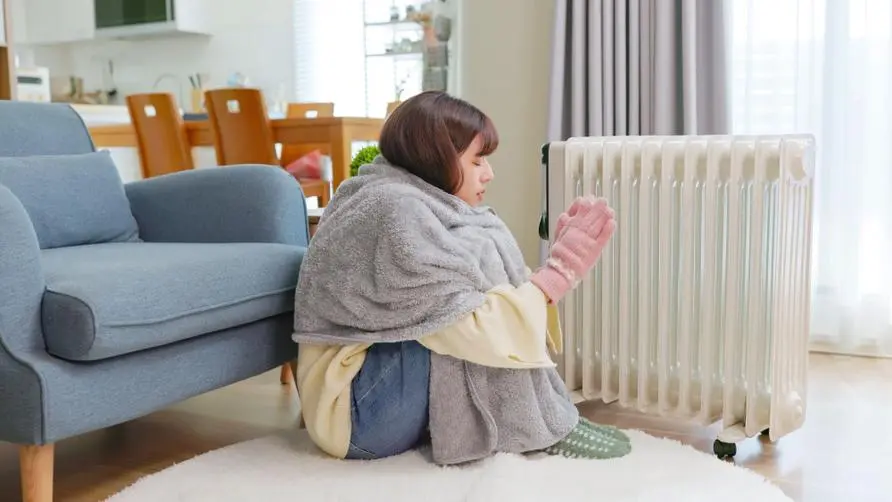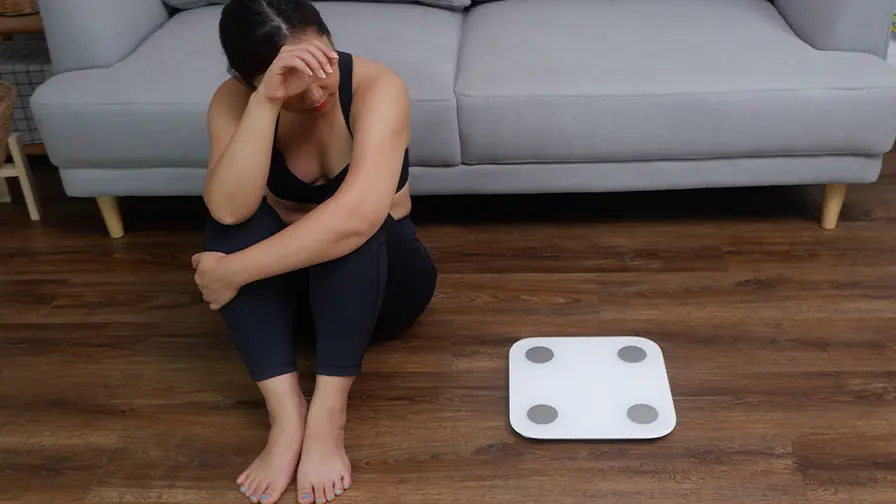Even if the cold wave doesn't come, my hands and feet will feel cold! "Cold Body Constitution" Must Know 4 Tips to Get Rid of Cold Women with Poor Blood Circulation Need to Know More

Are women more likely to have cold hands and feet than men? Is being born with a small frame one of the reasons?
If men and women are in the same office space, men often think that the air conditioner temperature is too low, while women have already put on coats to keep out the cold. Compared with men, women seem to be more likely to feel cold hands and feet, and their tolerance to cold weather seems to be lower. What’s the rationale behind this? Dr. Huang Xuan, an expert in critical care medicine, shared on social media that men and women have innate physiological differences.
Dr. Huang Xuan explained that according to a recent study published in the American Journal of Natural Anthropology, the key reason why women are more afraid of cold than men is revealed. The main reason is that women have smaller skeletons and dissipate heat faster, so they are prone to cold hands and feet. status. The research was initiated by a team from the University of Cambridge in the UK. The team used thermal imaging technology and bioelectrical impedance analysis to find that “the temperature of women’s palms is usually 2 degrees lower than that of men.” Another paper also found that women’s hands, feet, ears and other parts are on average about 3 degrees cooler than men.
In addition, research also points out that women have an average of about 10% more body fat than men. Men have more muscle mass and less fat; women have less muscle mass and more fat. Muscles help consume a large amount of calories and dissipate heat energy during the oxidation of carbohydrates and fats. This is one of the reasons why men always feel easily overheated. Even if men and women have the same weight, women tend to have less muscle mass to generate body heat, so men are more likely to feel hot at the same temperature.
Do men and women’s brains respond differently to cold? Intensivist: The skin’s ability to sense temperature is more sensitive than men’s
In addition to differences in muscle and fat mass, the brain structure of men and women also responds differently to cold. Dr. Huang Xuan pointed out that the “sensors” in women’s skin are more sensitive than men’s and will transmit cold messages to the brain faster. After the brain receives the message, it will immediately order the metabolic system to speed up work, blood vessels to speed up contraction, and the skin to be heated is also reduced. This is why women are more likely to have cold hands and feet in winter.
Furthermore, because estrogen can dilate blood vessels, women’s body temperature is often affected by the “rise in estrogen.” At the beginning of a woman’s menstrual cycle, estrogen tends to be higher, which will dilate the blood vessels in the limbs, allowing more heat to be dissipated through the air; conversely, when estrogen decreases, vasoconstriction will occur easily, and blood circulation will be reduced. The main purpose is to protect the trunk. Insufficient peripheral blood flow will also cause cold hands and feet.
Even if the cold wave doesn’t come, my hands and feet will feel cold! Doctors teach 4 tips to keep your body warm
Since it is congenital factors that cause men and women to feel cold differently, how to solve the problem of differences in the perception of environmental temperature between men and women? Dr. Huang Xuan’s explanation is as follows:
Nordic sleep method. Asian lovers or couples like to sleep under a quilt, but they will find that the quilt will eventually roll up on the female partner, and even both parties subconsciously pull the quilt repeatedly in the middle of the night. Research has found that if partners adopt the “Nordic sleeping method”, which means using two quilts of different thicknesses before going to bed, it can help both partners adapt to different temperatures and promote more efficient body temperature regulation.
Carry warm items. Studies have found that office workers or office workers can help improve office efficiency by making good use of small objects to help regulate body temperature. Small items including small desktop fans, heating packs, leg warmers, small blankets, etc. are less susceptible to being affected by excessively high or low indoor air conditioning temperatures.
Drink tea in moderation. “Circulation” research points out that black tea and green tea are rich in antioxidants, which can promote cardiovascular health and improve blood circulation. In addition, drinking tea may reduce the incidence of coronary artery disease. It is speculated that the “flavonoids” in tea are related to reducing inflammation and oxidative stress in the body.
Maintain exercise habits. “Circulation” shows that regular cardiorespiratory exercise, such as jogging, can keep the circulatory system healthy. Whether it is a light brisk walk or competitive jogging, or even the simplest walk after a meal, it can improve vasodilation; or practice “yoga exercise”, which involves bending and stretching of the body. Various movements have an impact on blood circulation and metabolism. benefit.
In addition, if women tend to have cold hands and feet in winter, Gao Min Min Nutritionist also posted on social media and suggested that there are many foods in life that can help produce heat, such as ginger, pepper, black pepper, turmeric, garlic, leeks, and hot black tea. , more than 70% chocolate, cinnamon, etc., help promote blood circulation, improve body metabolism, and produce the effect of “bringing your own heater”.
However, if your body’s cold hands and feet persist after taking the above measures, it is recommended to seek medical attention immediately to clarify your physical condition.
Source:
“Why are women more likely to feel cold than men?” - Dr. Huang Xuan
Energy consumption in buildings and female thermal demand
Gender differences in thermal comfort and use of thermostats in everyday thermal environments
Further reading:





